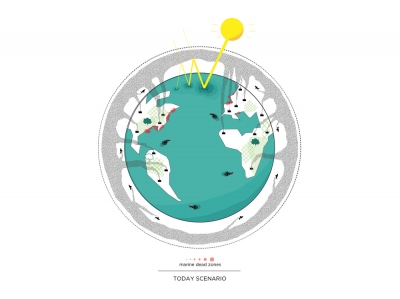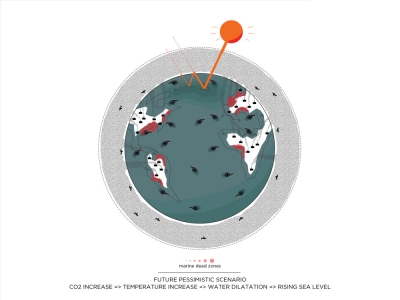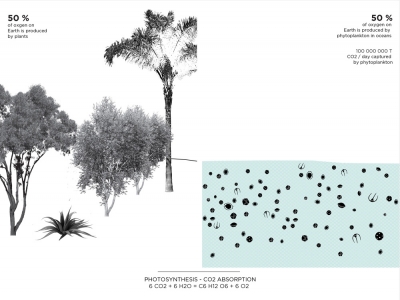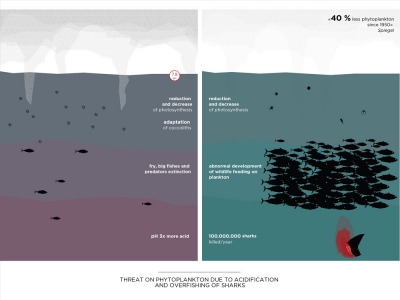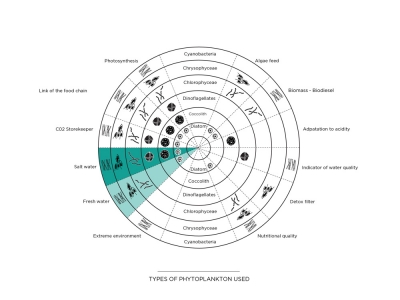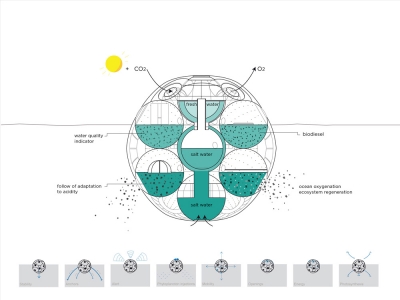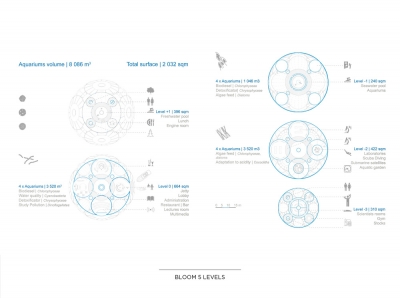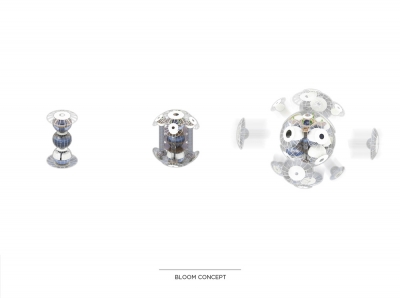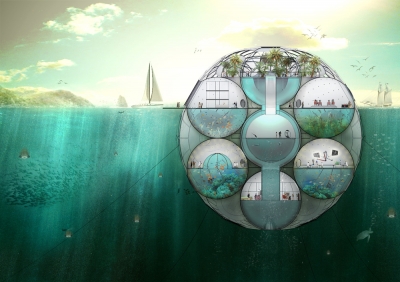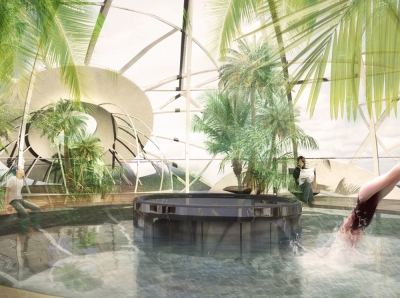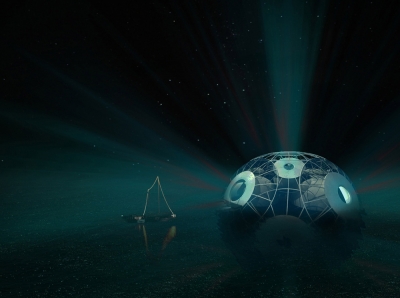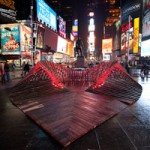Project: Bloom – An Aquatic farm for phytoplankton culture
Designed by Sitbon Architectes
GFA: 2 070 sqm
Height: 45m / 5 levels
Location: Indian Ocean
Website: www.sitbonarchitectes.com
The already noted Bloom project coming from the drawing board of Sitbon Architectes brings a new step in green architecture. The semi submerged Bloom capsule will not only produce additional O2 it also filtrates salt water into fresh water. The up and coming Paris based Sitbon Architectes was recently selected as part of the“100 architects of the year 2012” International exhibition and book with Rex, UnStudio and Jds.
Discover more of the project along with architects' description after the jump:
From the Architects:
The water is going to redefine our future. By 2050, its level will get sixteen centimeters more than today and Asia is planned to be very affected by this phenomenon. Conceived to be first installed in Indian Ocean, Bloom is an initiation of a link which purpose is to find an alternative issue on rising water due to global warming. This is why the concept of this large-scale project is to practice the culture of phytoplankton that absorb C02 excesses and create 02.
Bloom is a semi-submersible center that can also alert in case of tsunamis. Moored to the seabed with a system of cables, it is a controller of water level and quality in died zones of the oceans, rivers, coastal zones,… Its goal is to regulate their O2 quantity by injecting phytoplankton making photosynthesis.
The project offers a living environment for the permanent staff of scientists and for phytoplankton in big aquariums. It is thus the first project created for these algae. It is a catalyst structure of their growing and in a way it’s a matrix pocket of oxygen on Earth.
Bloom wishes to be a sustainable answer by decreasing our carbon footprint while learning to live in accordance with our oceans. Every factory producing CO2 would have its own Bloom to testify of its interest for a better environment. By giving us responsibilities on our CO2 consumptions, we would become aware of our ecological impact on the planet. Cause resourceful water is the mother of our civilizations and we will always need it.
"Nothing was made of big which wasn’t an exaggerated hope." Jules Verne



